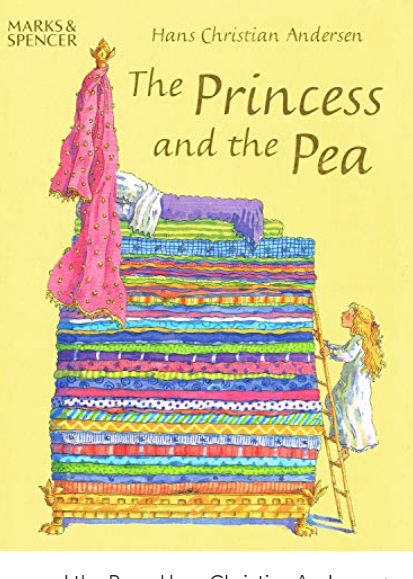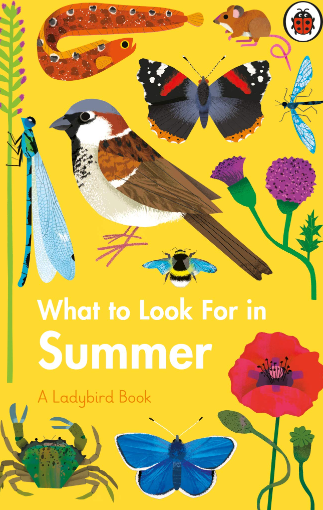Summer 2


For our final half term together, we will be having lots of fun learning in the sunshine and outdoors. Our learning will be based around animals, plants and summer and the story Princess and the Pea.
Communication and Language
The children will learn about animals from all around the world. They will learn new vocabulary to categorise animals by features, foods and habitats. With the story of The Princess and the Pea, the children will retell the story and act out the story in our outdoor theatre.
Vocabulary: habitat, diet, carnivore, herbivore, temperature.
Literacy
This our half term our focus book will be The Princess and the Pea by Hans Christian Andersen. The children will learn this story using actions and the story map. At the end, they will write their own little Fairy tale story. We will read lots of other prince and princess stories and compare them.
We will continue with our Read Write Inc sessions for phonics based reading.
In our writing areas, the children will have word mats with vocabulary linked to Fairy Tales. They will write invitations to Kings and Queens in other kingdoms. Linked to animals, the children will create lift the flap information about different features of different animals.
Vocabulary: king, queen, prince, princess, royalty, castle, tower, turrets, celebration, thunder, fairy tale, imaginary, long, long ago.
Physical Development
In our PE sessions, we will start preparing for sports day. We will continue to practise techniques for speedy running. Then we will practise the different races and skills. Throwing sponge javelins. h a partner and then in groups. We will be outside each week on the field or the playground. As part of our plant learning, we will look at plants that we eat. Then we will sort them and talk about how they help our bodies.
In our playtimes, we will continue to go out on the hill. The children will have access to tyres this half term, to build up their arm strength to roll and carry them.
Vocabulary: throw, run, sprint, aero-dynamic, healthy, unhealthy, vitamins, minerals.
Personal, Social and Emotional Development
In our circle times this half term, we will look at ‘My Wellbeing’. Although this is something we have discussed all year, it will be nice to recap on all of these points in a focused session.
We will be looking at: what is exercise, yoga relaxation, being a safe pedestrian, eating healthily and a rainbow of food.
Vocabulary: fit, healthy, exercise, pulse, heart rate, calm, peace, variety, balance, unhealthy.
Mathematics
The children will continue to practise to consolidate the key skills. There will be lots of opportunities to count and quickly recognise small amounts by subitising.
We will continue to encourage the children to notice similarities and differences as they match and sort objects in new contexts. They will look at the composition of amounts and continue to develop the children’s understanding that all quantities are composed of smaller quantities. We will build in regular opportunities for the children to continue comparing and ordering quantities and measures. Prompt them to notice which set has more, which has fewer and when 2 sets have the same amount. There will be regular opportunities for the children to practise and consolidate counting on and back within 10. Support the children to use the counting principles in order to find how many in a set or to count out a required number of objects from a larger group.
Vocabulary: add, subtract, subitise, altogether, more, less, take away, forwards, backwards.
Understanding the World
Our focus is on summer and how the environment and weather changes. We will look at sun safety and the importance of protecting our skin from the sun. With animals, we will look at what they eat, where they live, their unique characteristics and features. We will compare and sort them according to some of these such as animals that are carnivores.
As we focus on plants, we will grow our own sunflowers. We will watch them grow and talk about what plants need to grow well. In class, we will look at the parts of a plant and name them. We will compare different plants that grow. We are looking forward to seeing the apples and pears growing on the trees on the hill.
Our trip to the zoo will bring all of the learning about animals to life. The children will love getting to see so many different animals up close.
With the story of The Princess and the Pea, we will look at castles and the children will be able to construct large castles outside with cardboard and the crates. They will design shields and their own crests.
Vocabulary: stem, leaf, leaves, soil, roots, petals, stigma, habitat, diet, fur, castle, tower, turret, shield, crest, knight, kingdom.
Expressive Arts and Design
Animals are so different and interesting. The children already love creating stories with the animals outside or wearing animal masks and creating games. Whilst learning in more detail about specific animals, they will be able to incorporate this into their stories and games. We are looking forward to using junk modelling and paper plates to make various animals.
We will find out about the art works of Andy Goldsworthy. The children will create their own transient art using daisies, dandelions, twigs and leaves. In the classroom, the children will design flowers and make tissue paper flowers scrunching and tearing the paper as a new technique.
Linked to our Princess and the Pea story, we will build castles with large boxes, materials, brigs and props. The children will use cardboard to design, paint and make their own shields and crowns.
In our music lessons we will build up to a ‘big band’ performance. Starting with finding out what makes an instrument, then an introduction to an orchestra. The children will practise following a beat, learn about tuned and un-tuned instruments and finish with a big band performance.
Vocabulary: sound, beat, tempo, dynamic, beat, rhythm, strings, wind, conductor, join, link, build, construct, shield, coat of arms, cardboard, create, design, plan, template, scrunch, rip, tear, pattern, transient.
Computing
The children will sort and categorise data and are introduced to branching databases and pictograms. Some of these lessons include sorting ourselves into groups. Creating branching databases through physical sorting and categorising. Exploring pictograms, for example with animals. Finding out about the class favourite animals and putting this data into a pictogram. Once we have tried this, the children will be able to make their own based on all sorts of data such as favourite fruits, pets, hobbies.
Vocabulary: sort, categorise, category, group, altogether, count, more, less, share, divide, equal, weight, length, height.
Religious Education and World Studies.
We look forward to inviting Dads and Grandads into class for our last Parent and Carer engagement session. As part of our religious education, the children will be introduced to creation stories from different religions about how people believe the world began.
Vocabulary: religion, celebration, creation, world, believe, beliefs.
USEFUL WEBSITES
http://www.bbc.co.uk/education/topics/zf44jxs/videos/1
https://www.bbc.co.uk/cbeebies
https://www.oxfordowl.co.uk/
http://www.crickweb.co.uk/Early-Years.html
http://www.phonicsplay.co.uk/freeIndex.htm
http://www.ruthmiskin.com/en/parents/
